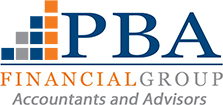The dangers of income splitting
Now and then the ATO issues warnings on how its general anti-avoidance legislation can apply to professional firms that allocate profits to individual professional practitioners with proprietorship in the firm.

Firms potentially affected include those providing services in the accounting, architectural, engineering, financial services, legal and medical professions.
Professional firms can be structured in a range of ways, depending on the choices made by the owners, but the ATO has warned that in some cases the way a business is structured “can be used in ways that give rise to different tax consequences and resulting tax compliance risks”.
Its concerns about tax compliance in these instances are based on where arrangements are set up so that a practice’s income is treated as being derived from the business itself, even though the source of that income is actually the provision of professional services by individuals.
The ATO says this is particularly the case where:
- the level of income received by the practitioner, whether by way of salary, distribution of partnership or trust profit, dividend or any combination of them, does not reflect their contribution to the business and is not otherwise explicable by the commercial circumstances of the business
- tax paid by the practitioner and/or associated entities on profits of the practice entity is less than that which would have been paid if the amounts were assessed in the hands of the practitioner directly
- the practitioner is, in substance, being remunerated through arrangements with their associates, and
- the structure does not provide the practitioner with advantages, such as limited liability or asset protection.
The danger here is that the ATO may commence compliance activity, including audits, of practitioners for any given income year. The ATO’s approach could include:
- an individual professional practitioner provides professional services to clients of the firm, or is actively involved in the management of the firm and, in either case, the practitioner and/or associated entities have a legal or beneficial interest in the firm
- the firm operates by way of a legally effective partnership, trust or company, and
- the income of the firm is not personal services income.
High and low risk
The ATO says taxpayers will be rated as low risk and not subject to compliance action if they meet one of the following guidelines regarding income from the firm (including salary, partnership or trust distributions, distributions from service entities or dividends from associated entities):
- the practitioner receives assessable income from the firm in their own hands as an appropriate return for the services they provide to the firm. The benchmark for an appropriate level of income will be the remuneration paid to the highest band of professional employees providing equivalent services to the firm, or to a comparable firm
- 50% or more of the income to which the practitioner and their associated entities are collectively entitled (whether directly or indirectly through interposed entities) in the relevant year is assessable in the hands of the practitioner
- the practitioner, and their associated entities, both have an effective tax rate of 30% or higher on the income received from the firm.
Where none of these guidelines are satisfied, the ATO says the practitioner’s arrangement will be considered higher risk, with increased chance of compliance action. The lower the effective tax rate of an arrangement, the higher the ATO may rank the compliance risk.
Tax & Super Australia
www.taxandsuperaustralia.com.au
